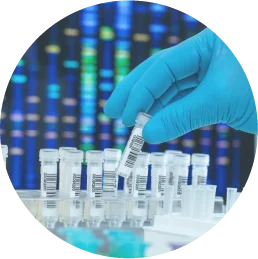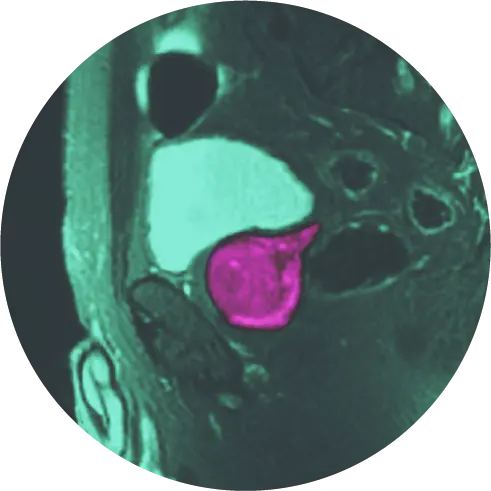A new study suggests that screening for prostate cancer using genetic testing and a multiparametric MRI (mpMRI) scan before an invasive biopsy could prevent as many as 1 in 6 deaths from the disease and significantly reduce over-diagnosis and unnecessary treatment.[i]
Researchers at the University College of London modeled the effectiveness of two hypothetical MRI-first approaches for use in population-based screening programs. One program based guidelines on age, and the other on genetic risk of developing prostate cancer. The sample population was 4.5 million English men aged 55-69.
As with previous studies, findings favored the use of mpMRI before biopsy in both programs.[i]
The UCL team concluded that a program wherein men started screening based on their genetic risk of prostate cancer was the most ideal.
Co-author of the study, Professor Mark Emberton, UCL Dean of the Faculty of Medical Sciences said “Our study shows that screening for prostate cancerwhich could save between 16% and 20% of prostate cancer deathsmight be possible with targeted screening using genetic risk and MRI as part of the diagnostic pathway.
In a statement, the team said, “the scenario generating the most benefits would be to screen men with a 3.5% risk of getting prostate cancer over the next 10 years — that is, roughly half of all men aged 55 to 69. Such a program could prevent up to 16% of prostate cancer deaths… [and] would also be more cost-effective than screening all men aged 55 to 69.”
The risk-tailored program resulted in a 16% decline in mortality, and a 27% decrease in unnecessary diagnosis and treatment. The program was compared with no screening, the age-based screening program, and a range of risk thresholds, both with and without the use of MRI prior to biopsy. The 3.5% risk threshold was determined through genetic analysis that identified which men in the sample population carried biomarkers, or genes, known for causing prostate cancer. Like the current HALO Diagnostics prostate cancer care ensemble, the clinical pathway included a PSA test, a genetic risk assessment, and an mpMRI scan before biopsy.
Senior author, Professor Nora Pashayan said, “In men with a positive screening blood test, we found that using an individual’s genetic profile alongside a diagnostic pathway that uses MRI scanning before biopsy, could reduce unnecessary diagnoses whilst preventing deaths from prostate cancer by detecting the cancers at an early, curable stage.”
In other words, knowing your risk is essential, and the sooner the better. HALO Diagnostics is committed to radically improving prostate cancer screening, diagnosis, and treatment. Click to schedule a free prostate cancer care consultation today. To learn more about the HALO Diagnostics approach to prostate cancer screening, or for an overview of our complete care ensemble including the multiple genetic analysis tests we offer, download our thorough overview:
Read full details from the study published on the JAMA Open Network.
[1] Thomas Callender, Mark Emberton, Stephen Morris, Paul Pharoah, Nora Pashayan, ‘The impact of MRI prior to biopsy on age-based and risk-tailored screening for prostate cancer: A benefit-harm and cost-effectiveness analysis’, JAMA Network Open (2021). DOI: 10.1001/jamanetworkopen.2020.37657
[2]Eldred-Evans D, Burak P, Connor MJ, et al. Population-Based Prostate Cancer Screening With Magnetic Resonance Imaging or Ultrasonography: The IP1-PROSTAGRAM Study. JAMA Oncol. Published online February 11, 2021. doi:10.1001/jamaoncol.2020.7456




